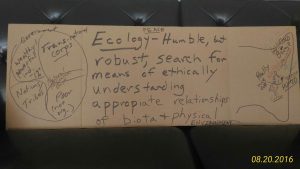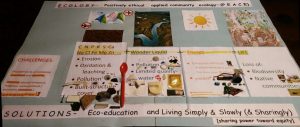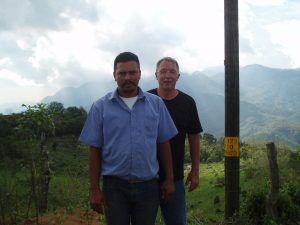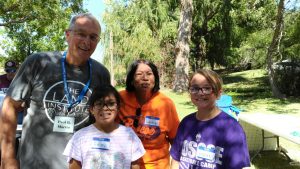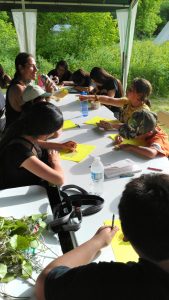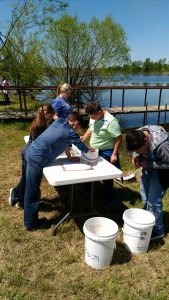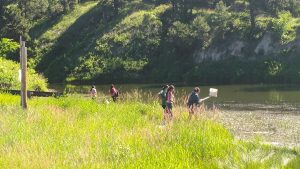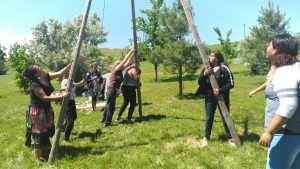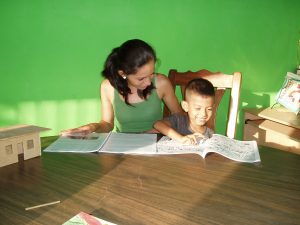“… teachers are really proving that they ARE the backbone of education now and always have been, not legislators or standardized testing development companies. They are creating their lessons plans, staying in contact with students, informing parents, and encouraging both while taking care of the needs of their own children and homes. They are indeed heroes as well as health care workers. “
From a highly respected and good teacher of many years at Seguin ISD
(During this COVID-19 Pandemic, Seguin ISD is maintaining quality contact with 100% of its student population, providing hotspots where needed for internet connection and communication, preparing 10s of thousands of meals free of charge, and working to maintain quality education & enrichment activities during these trying days of the novel corona virus. Moreover, fiscally responsible strategies and tactics are being considered for now and the future in light of lake management and COVID-19 economic impacts.)
I am writing this piece after a wakeup call from LULAC Council 682. Local LULAC colleagues helped me to recognize that despite my constant bringing up the topic of the desperate need for ecology-across-curricula & -campuses of all human organizational entities, my active involvement in our local Seguin ISD was a very minimal few committee assignments back in the 1980s/90s when our children were in school here and some school board meeting-attendance during school bond campaigns. I began to feel some deep guilt after a couple of LULAC meetings in which we discussed local educational issues!
More Perfect Public Schools. I do strongly believe, and there is science to support this, that schools should be kept small, be nestled in the community for equitable ethnic, cultural, socio-economic diversity, and have plenty of secure native green space for outdoor ecological learning. We have done a reasonable job with elementary schools, but the middle and high schools of the district should be closer in size to 500 students rather than the current 800-2000 students per school.
In their learning process each and every student should receive a profound and holistic learning of ecological processes, principles, and values, i.e., the development of the capacity to ethically interact with local ecological community and to critically think and decision-make. They should become generalists as well as to become at the least fairly good at some specialty. Of course the ability to effectively communicate is of utmost importance; there should be solid learning of the three Rs; a solid foundation in the sciences and the humanities should be built; and the school days should involve healthy nutrition, regular but fun exercise, sports, art, and music. Moreover, being able to speak more than one language should be a goal to be seriously considered. Ecology-across-the-curriculum also incorporates economics, including home economics and money management as well as a study of agriculture and being able to grow our own food locally.
Finally, a school with ecology-across-the-curriculum and -campus would be robustly involved and integrated in the whole ecological community. Each student would locally perform service learning and/or internships and present results of these experiences to local organizations and groups during their high school years. There would be campus measurements of energetics, material flow, life cycle analysis and externalities, trash, pollution, food nutrition analysis and amount grown on campus, and other sustainable indicators … and an attempt to make the school and local village truly sustainable. (I must mention that sports fields should use natural grass, that the community emphasis should be more on the less expensive and heathier fútbol vs. football, and that buildings should be constructed and oriented to use to the extent possible passive cooling and heating strategies.)
https://www.eeob.iastate.edu/classes/EEOB-590A/marshcourse/V.5/V.5a%20What%20Is%20Education%20For.htm
Current State of Seguin ISD. I won’t be satisfied until we achieve my dream touched on in the previous section which implies hope for more perfect public schools. However, the current mindsets of the local, regional, national, and international populace are not with me (except perhaps in Finland*). Nevertheless, there are some incredibly positive things that make me happy about Seguin ISD. I believe we have a great and principled school board which is interested in Seguin ISD being fiscally sound, pragmatic, and working toward a more ideal learning system. We have highly intelligent administrators of integrity who are working smartly and with focus on some cutting-edge programs (designed to reach all students and to holistically and profoundly meet our learning needs including Spanish and English as other languages). And we have good students, parents, and teachers who have the capacity to work together and learn. We have an incredibly supportive and competent staff. And as our current mayor often reminds us, we do have a good little community with adequate resources for realizing quality learning. (We do, however, need to work harder at making certain that everyone here has a sustainable livelihood with adequate monetary compensation for quality life. … We need a goal and doable plan for considerably less disparity.)
Seguin ISD excites me in particular with novel development of some good old ideas such as:
• Community Learning Exchange (CLE) spearheaded by Mark Cantu, Chief of School Improvement. Mark and CLE are a key cornerstone to making certain there is school and community communication with each and every student in the Seguin ISD. CLE is a sharing of local wisdom from all sectors of the community with none being left out, and collective leadership approaches for addressing critical social issues. CLE is de facto an affirmative action.
• Whole Child Initiatives (WCI) and the LiiNK (let’s inspire innovation and kids) Projects directed by Pete Silvius. These initiatives focus on unstructured play (four 15-minute breaks per day), good health, and character development and social responsibility. Moreover, there have been efforts at encouraging more students to walk and bicycle to and from school, including in organized groups under adult supervision. Seguin’s LiiNK Project has statistically analyzed results demonstrating drops in overweight children as well as significant decreases in off-task behaviors. (I personally have appreciated being involved with ecological activities at the Seguin ISD Fifth Grade HEB Camps and similar activities for elementary students at the Seguin Outdoor Learning Center, both associated with Pete & WCI.)
• Dual Language Enrichment being diligently developed with the blood and sweat of Andrea Jaramillo. Goals are for high linguistic proficiency and high academic proficiency in two languages, and positive cross-cultural attitudes.
My focus on these three (3) programs does not mean that other areas of learning are being neglected within Seguin ISD. For instance, the district recognizes the essential needs of Special Education and maintaining a focus on these students with special talents, strengths, and disabilities. Seguin ISD teachers, the administration, and the board are relentless in trying to reach EACH child, and the WHOLE child with comprehensive learning.
One of many goals of Dr. Matthew Gutierrez, superintendent of Seguin ISD is to attain 100% on-level reading by the third (3rd) grade within five (5) years. Seguin ISD was on track to meet this goal pre COVID-19. Also, Seguin ISD has a robust Early College High School in which over 60% of the participants are Hispanic and other minorities. Estimated value to the 290 families involved is over $400,000.
Since I do love tennis, I would be remiss if I didn’t mention that Mr. Sam Ramos, history teacher, tennis coach, and fluent English/Spanish speaker has amazingly gotten tennis adult enthusiasts from the upper 80s in age to the 20s involved in playing with and teaching tennis skills to his Matador team during the summer and after school. It is a wonderful collaborative learning and communication process and demonstration of solidarity in the village of Seguin.
Now, I don’t mean to indicate that all is hunky-dory here with the education system in south central Texas, U.S.A. By many measures, this proud state ranks low as far as quality learning is concerned. The U.S., Texas, Guadalupe County, and Seguin have some serious education challenges. In addition, despite the mantras in education of “steady-navigating through goal-setting and policy development, strategic planning & action, monitoring, assessment, and replanning to stay the course”, I am regularly disappointed with too much administrative reorganization and turn-over, total replanning before a plan has been given the time and opportunity to work, and a paucity of good statistically analyzed assessments in the education process. Nevertheless, I am convinced that Seguin ISD is currently intelligently and industriously working to meet the challenge of improving quality education.
Let’s battle tooth and nail in solidarity as community and give positive energy, sabiduría, and resources to make Seguin ISD become the best it can be. We all know that quality learning is the foundation for quality local ecological community. I personally am going to work at becoming more knowledgeable about our local schools through some additional research and reading and by viewing past school board meetings and attending (via Zoom or otherwise) future meetings. https://www.youtube.com/playlist?list=PLDQoPCuC0P07mZ8Lq6K7tpO29YjM2bZF2 Furthermore, if anyone wishes to send me an email or come by the house (with a mask and social distancing) for relevant dialogue, my addresses are:
pbainmartin@gmail.com & 605 Elm Street, Seguin, Texas.
And if you do contact me, I’ll probably give you my android number for texting. Also, I do have a Facebook page and blog.
Finally, …
if I perceive significant unwarranted incompetence and slack and intellectual laziness, and/or if I experience true and justified disappointment with respect to the improvement of our local education system, I will be overtly and covertly speaking out against the responsible pendejos.
paul b. martin, ph.d.
Some limited experience in teaching at all levels–
kinder, elementary, middle, high, and disciplinary schools (Sue Smith);
scientific presentations at meetings/short courses.
22 years at St. Philip’s College with collaboration with
Gates Kindergarten and Davis/Wheatley Middle School and Brackenridge High, etc.
Certified in Biology/Physical Science, Composite Science, and Spanish.
Volunteer as Science Fair judge for many years, and ecologically with elementary youth with Seguin Outdoor Learning Center, Kids on the Land, Generations Indigenous Ways, etc.)
………………………………………
*Finland generally ranks high in education assessments. Its school system has a Dewey philosophy of experiential learning, integrated ecology across the curricula and campus, and development of critical thinking and decision-making. Schools and class sizes are small; they emphasize regular play breaks, outdoor learning, and cooperation over competition; school days are short; and there is not onerous homework. Standardized testing is not generally used but schools are regularly evaluated to provide guidance to administrators for positive school development. Most teachers have a Master’s degree.
pbm
[ 7 S’s / VV->^^ ]

